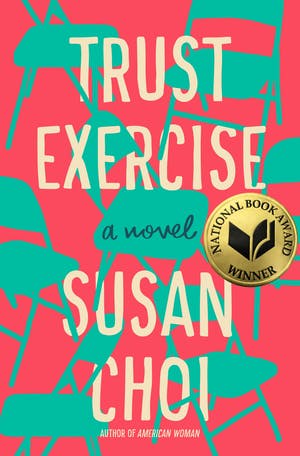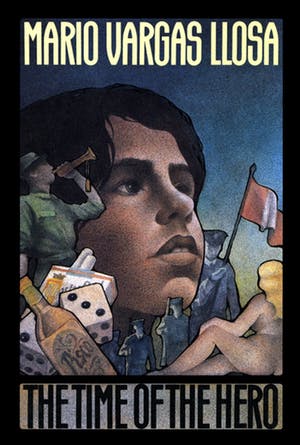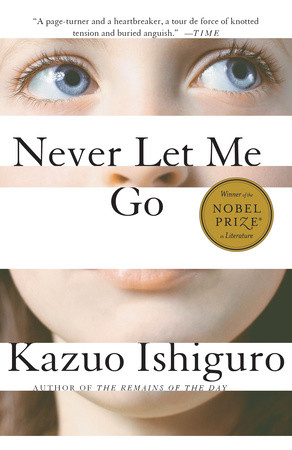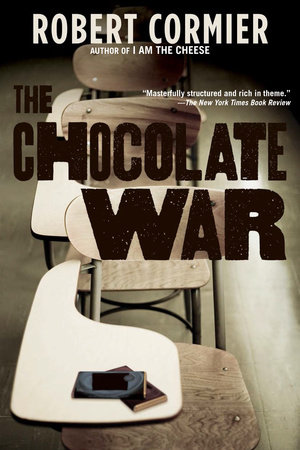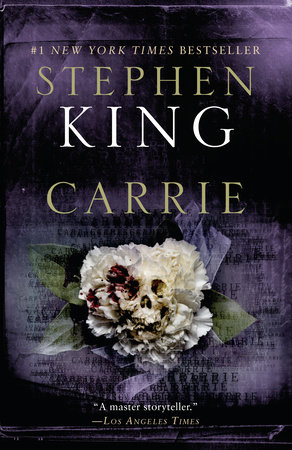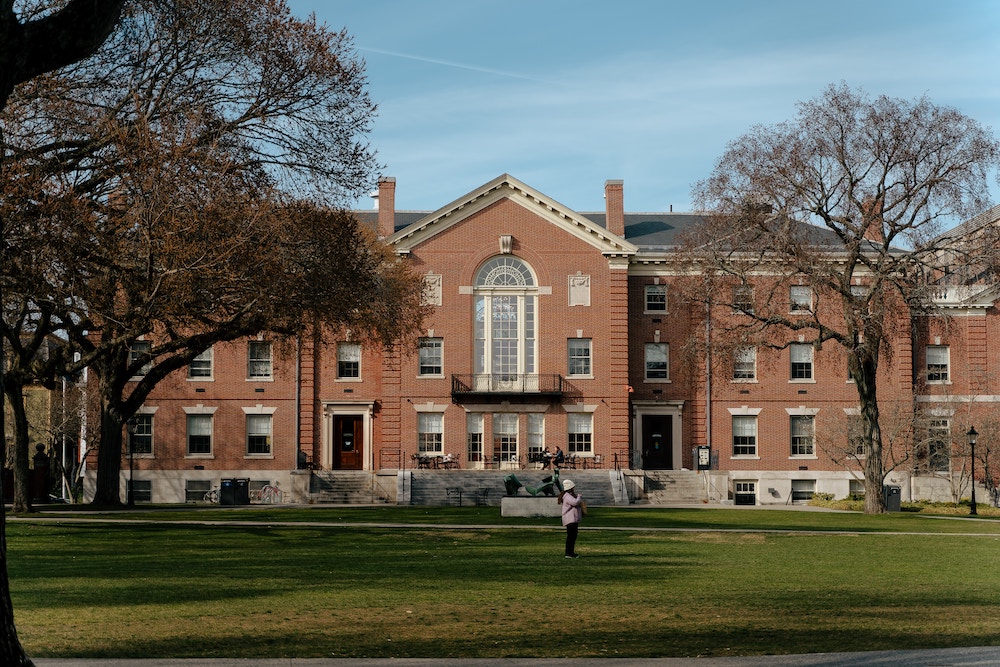Reading Lists
The Weirdest Schools in Literature
Bethany Ball, author of "The Pessimists," recommends books set in schools where things aren't quite what they seem

Schools have their own set of rules and morality, rituals and language. What makes sense in an elite private Manhattan school—good grades, fancy clothes, the competitive sports of the wealthy (squash and tennis) can be entirely anathema in a progressive school where cooperation, eschewing of labels, and creativity are valued. In a small community, an outsider can never fit in or understand what goes on in the center. Sometimes the most ordinary school can be rendered creepy. The inhabitants—students and teachers—are stuck there after all until they graduate or retire. Throw in a charismatic leader, secret society, or strange ideology, and what you have is a cult.
In my novel The Pessimists, six couples wrestle with what it means to raise and educate children in a new century that seems destined to leave them behind. The Petra School promises a back-to-nuts-and-bolts education, but what it offers instead are elitist and poorly conceived ideas about children not firmly based in reality. Almost every parent struggles with their children’s schools at some point or another, whether the school is private or public, and educating children at times feels like wild speculation. One child thrives in an environment that is to another child’s detriment.
Many of us remember our high school years with the intensity as if they happened yesterday. I can barely remember anything that happened the year before the pandemic, but I can still smell my high school cafeteria at noontime. Bewildering things happen in schools all the time and there are often no other adult witnesses. The wildest things happen in schools: violence, sex, breakdowns and breakups, abusive teachers, bullying, tragedy, but comedy also. Boarding schools are especially ripe settings for novels and I’ve included four novels that take place in them. Carrie is the most American, most John Hughes of all the high schools on the list and Curtis Sittenfeld’s is perhaps the most benign. Ishiguro the most heartbreaking—the students are doomed from the start.
Here are the seven weirdest high schools in literature:
The Citywide Academy for the Performing Arts (CAPA) in Trust Exercise by Susan Choi
As grownups, we look back on our school years with bewilderment and sometimes bewitchment. Susan Choi’s Trust Exercise has all the culty elements I appreciate in a novel: an ’80s school culture I recognize, teenage romance, artistic ambition, unreliable narrators, surprise twists, and a dangerously charismatic leader. The Citywide Academy for the Performing Arts (CAPA) is a high school for talented drama students. The first third of Trust Exercise, features Mr. Kingsley, a charismatic teacher with an arbitrary set of rules and criteria for succeeding:
“His very way of gazing told them plainly how far they fell short….they felt their deficit all the more sharply because the unit of measure was wholly unknown.”
The last two-thirds spin the entire book on its head; the author pulling us through the high school gauntlet experientially: elliptical, circuitous, gaslighting.
The Leoncio Prado Military Academy in The Time of the Hero by Mario Vargos Llosa, translated by Lysander Kemp
Originally titled La Ciudad y Los Perros, “The City and the Dogs”, this 1963 novel is set at the military academy in Lima that Llosa himself attended as a teenager and deals with the death of a student and the school’s subsequent cover up. This nonlinear story is told from multiple perspectives and was influenced by Faulkner who Vargas Llosa said he read with pencil and paper in hand trying to attempt to distill Faulkner’s style. The abuse and violence described was directly related to Vargas Llosa’s own 1950s experience as a student there in the 1950s and the publication of the novel so angered the administration that they went on to publicly burn 1,000 copies.
Hailsham Boarding School in Never Let Me Go by Kazuo Ishiguro
I love books where the slow reveal of the reality of a place is the central mystery. Indoctrination is the central theme of Ishiguro’s dystopian novel Never Let Me Go where young students reside unwittingly at a boarding school for future organ donors. The writing is gorgeous and gripping and as both a love story and a mystery, it also manages to explore questions of science decoupled from ethics.
Trinity High School in The Chocolate War by Robert Cormier
“Do I dare disturb the universe?” reads the T.S. Eliot quote in Jerry Renault’s locker. If the main goal of a school is education, the second is to conform: to rules, to tasks, to groups, to an identity. Set at a fictional Catholic high school, The Chocolate War depicts a secret student organization’s manipulation of the students that sets a mob mentality against Jerry who is coping with depression after the death of his mother. When Jerry refuses to sell chocolates for the school’s annual fundraiser, the ire of the headmaster and the secret society are set upon him. For any non-conformist, The Chocolate War strikes fear in the heart while imparting one note of comfort: you are not alone.

Ault School in Prep by Curtis Sittenfeld
Upper-class waspy prep schools are something I can’t get enough of. A club so elite they’d never accept me? Please, tell me more. I devoured this book when it came out. Being a Midwesterner myself, I also pined for the J Crew catalog-looking East Coast boarding schools and begged my mother to attend one. However, because we were not rich and I was a fairly terrible student, it was never going to happen. Prep is the quintessential fish out of water story: Lee is Midwestern, not rich, not schooled in the ways of the monied East Coast elite, but she wants desperately to fit in. She finds herself, at least initially, with the outsiders on the margins, but rejects them as she moves closer to the center. Ault School is full of the sort of arcane rituals one expects: names like Tig and Cross and Gates, summers in Nantucket, and the game of Assassin played throughout campus.
Barker Street Grammar School in Carrie by Stephen King
As a preteen, I read all of Stephen King but there was one book my mother would not let me read: Carrie. As kind of a skinny girl, scrappy and ugly, and one of the only kids in my school who did not attend a church or synagogue, she was concerned I would relate too much to Carrie’s loner status. By the time I did finally read it, I was solidly ensconced in a fairly normal teenage experience. It was no less horrifying. Carrie’s school is utterly ordinary and what’s terrifying in the end about the book is not Carrie’s retributive fury, it’s the cult of the ordinary: the horrors ordinary students will inflict on anyone who is different from them.
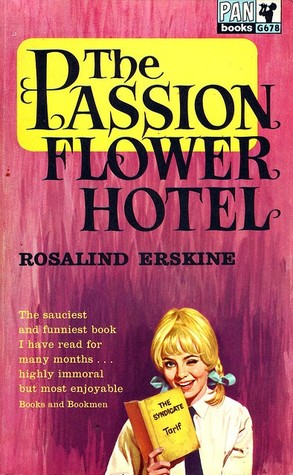
St. Clara’s Boarding School in The Passion Flower Hotel by Roger Erskine Longrigg (writing as Rosalind Erskine)
I found this book on my father’s bookshelf when I was a kid and couldn’t resist this dusty ancient paperback. It’s wildly inappropriate and at the time felt irresistibly naughty. It’s the early 1960s and a group of girls are obsessed with losing their virginity. One of the girls reads a sociological study on prostitution and they are inspired to turn their English boarding school into a brothel for the boys across the lake. They call themselves “The Syndicate” and offer three services: Vision Only, Touch, and Nothing Barred. Other activities include a striptease and burlesque. Although funny and Woudhousian at times, the book is dated with racist elements and 1960s mores on gender and sex. Best read as a time capsule.





